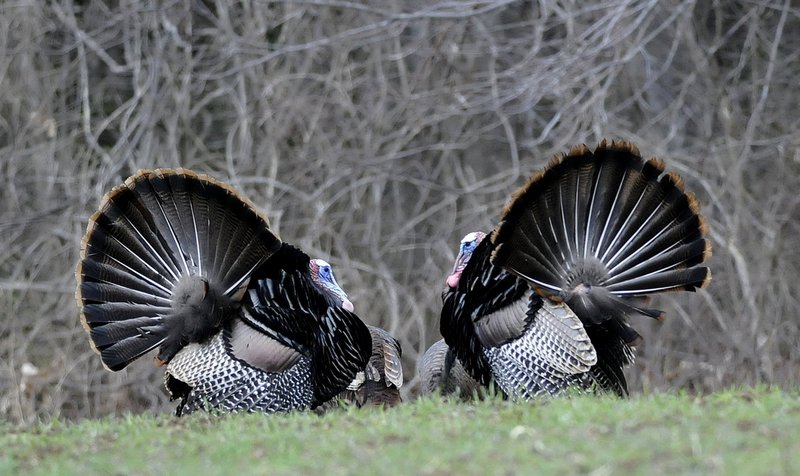The long-awaited opening day of spring turkey season has finally arrived. You’ve scouted, patterned your gun and practiced your calling, all to improve your chances of a successful hunt. But experience has taught you there are no sure things in turkey hunting.
You watched the birds fly up to roost the night before but can’t be certain they’re still there. Maybe some nocturnal predator scattered them while you slept. In the distance, a barred owl belts out its bass notes, heightening your doubts. Then a big tom booms his response from a nearby treetop and you breath a sigh of momentary relief.
The gobbling picks up in intensity but it’s too soon to call. Shooting light is another 10 minutes away and you don’t want to tip your hand yet. Too much calling could work against you.
But the gobbling elicits soft clucks and tree yelps from a harem of hens you’ll ultimately have to compete with.
That changes the game plan, so you scratch out a few soft tree yelps on your slate, sending a message that “there are hens over here, too.” The gobbler booms back, but was he responding to you or the real thing?
Soon you hear the snapping of twigs followed by the thrashing of wings as the first bird boldly launches from the safety of the roost. For a moment all is silent and you wonder, “Was it the tom or a hen whose feet first hit the ground?”
If it was the tom, you’ll want to turn him your way as soon as possible. But if you compete with a hen, she might pull him the other way.
A long silence is followed by more flapping wings and snapping twigs, but no calling or gobbling. You pop in a mouth call, take a deep breath, then hesitate. The timing of your next call could be critical.
Finally, the longbeard gobbles again. As so often happens, he’s still on the roost, perhaps waiting to see which way the hens will lead him. You wait silently, also trying to get a bead on which way they’ll head.
Your preseason scouting says they should come your way. But small as it is, a turkey’s mind is its own and can change on a whim. Calling now is a gamble that you eventually decide is worth taking. You start with a fly-down cackle followed by a short burst of yelps.
The gobbler hammers back, obviously responding to your calls, so you fire another volley of yelps. He gobbles again. Then a jealous hen enters the contest, followed by another, and another. The gobbling stops and you hear the heavy wings of the tom as he exits the roost.
More long seconds of silence are broken by a gobble. At first it seems the flock is moving away.
You remind yourself, “They always sound farther away on the ground than in the roost.” The calling — yours, the hens’ and the tom’s — picks up in intensity.
But it soon becomes apparent that the birds are indeed headed in the wrong direction. You silently curse yourself: “Did I call too soon? Too aggressively?”
All the plans and all the preparation failed to produce the desired result. Looking down at your watch you realize the season has only been open for 20 minutes.
Disappointment has barely set in when you hear another gobble, coming from a different direction. All the commotion has piqued the interest of another tom and the game begins anew. Hope and doubt spring eternal in the turkey woods.
Bob Humphrey is a freelance writer and registered Maine guide who lives in Pownal. He can be contacted at: bhhunt@maine.rr.com
Copy the Story Link
Send questions/comments to the editors.



Success. Please wait for the page to reload. If the page does not reload within 5 seconds, please refresh the page.
Enter your email and password to access comments.
Hi, to comment on stories you must . This profile is in addition to your subscription and website login.
Already have a commenting profile? .
Invalid username/password.
Please check your email to confirm and complete your registration.
Only subscribers are eligible to post comments. Please subscribe or login first for digital access. Here’s why.
Use the form below to reset your password. When you've submitted your account email, we will send an email with a reset code.